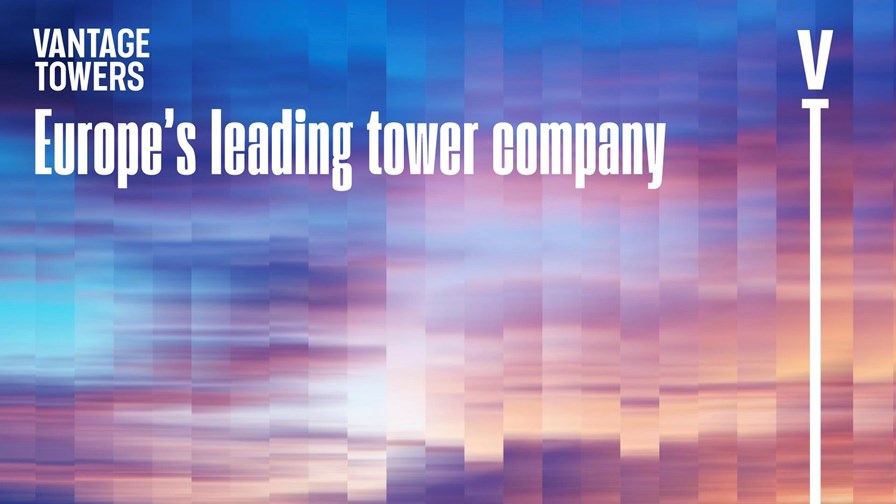
- Vodafone has been seeking co-investors in its towers spin-out
- The operator currently owns 81.7% of Vantage Towers
- Private equity firms GIP and KKR have landed a deal to become co-owners
- A new joint venture will be formed that will take ownership of Vodafone's stake
- Vodafone will get up to €7.1bn from the deal
Following a competitive bidding process, private equity firms Global Infrastructure Partners (GIP) and KKR have been selected by Vodafone Group to be the co-owners of the telco’s passive infrastructure spin-out Vantage Towers in a deal that could net Vodafone up to €7.1bn and values the tower assets firm at €16.2bn, or €32 per share.
The GIP/KKR combo had been identified as the frontrunner in recent reports, competing with pan-European towers giant Cellnex to invest in a slice of Vantage Towers, and it has finally landed the deal. The pair will form a new joint venture with Vodafone, which will own the telco’s 81.7% stake in Vantage Towers (the remaining stock is publicly traded on the Frankfurt exchange following last year’s IPO).
The deal, which includes various steps and stages, is quite complex, but the plan is to attempt to acquire the shares that are currently held by other investors through a voluntary takeover offer and, ultimately, get the GIP/KKR stake in the joint venture up to 50% – equal with Vodafone. Vantage Towers, which generates annual revenues of just over €1bn, has about 46,000 of its own towers across Europe, mainly in Germany, Spain and Greece, and owns stakes in Italian towers firm INWIT and UK firm Cornerstone that together have about 36,000 sites.
Vodafone is guaranteed a net cash gain of at least €3.2bn from the creation of the joint venture, but could net between €5.8bn and €7.1bn, depending on the success of the voluntary takeover offer and the ability of GIP/KKR to raise the additional funds needed to get their combined share to 50%.
Vodafone CEO Nick Read is happy with the deal. “This is a landmark moment for both Vodafone and Vantage Towers. This transaction successfully delivers on Vodafone’s stated aims of retaining co-control over a strategically important asset, deconsolidating Vantage Towers from our balance sheet to ensure we can optimise its capital structure and generate substantial upfront cash proceeds for the Group to support our priority of deleveraging,” noted Read. “We are excited to partner with GIP and KKR, both world-class investors who bring significant expertise in digital infrastructure and share our long-term vision for Vantage Towers as we collectively take the business to the next stage of its growth,” he added.
The news sent the Vantage Towers stock soaring by 11.8% to €32.76 in Wednesday trading in Frankfurt, suggesting the deal was at a higher price than expected: Only weeks ago the shares could be bought for €25.00.
Vodafone investors were not as pleased, though, as the telco’s share price dipped by almost 1.8% to 104.4 pence on the London Stock Exchange.
“Together with our strategic partners, Vodafone and GIP, we believe Vantage Towers’ high-quality footprint and network across the region ideally position it to meet the ever-growing demand for mobile connectivity in Europe,” noted Vincent Policard, partner and co-head of European infrastructure at KKR.
“We have a shared goal of creating a pan-European telecoms champion by continuing to grow and develop the business, leveraging the consortium’s significant telecoms infrastructure investment experience and global resources. At KKR we are long-term conviction investors in Europe’s digital infrastructure and at Vantage Towers we intend to pursue value-creating investments to capitalise on the growth in this sector and to help drive consolidation in a fragmented market,” he added.
And there’s the bell that heralds further M&A in the sector once this deal has closed, which is due to happen early in 2023. But buying other tower assets is just one of the aims of the joint venture that will own Vantage Towers. The new partners aim to grow the business by:
- Delivering an ambitious build-to-suit programme, which enables mobile network operators to meet their coverage obligations and densification requirements;
- Capturing additional co-location opportunities from new and existing third-party customers;
- Pursuing meaningful growth opportunities in adjacent areas, such as small cells and distributed antenna systems for 5G capacity expansion, as well as edge computing;
- Pursuing other growth-accretive investments, including actively participating in the consolidation of the European tower landscape; and
- Enhancing profitability through continuous operational improvements.
So, once again, the question is: What happens next in the European towers sector?
Cellnex has missed out again: It wanted this deal, and also wanted a part of GD Towers, the business in which Deutsche Telekom sold a 51% stake to investors DigitalBridge and Brookfield for €10.7bn earlier this year. Either would have given Cellnex a foothold in Germany, the one major European market where it doesn’t have a presence, so what can it do now?
There’s also the ongoing question mark hanging over the future of Totem, the towers unit of French telco giant Orange. It hasn’t been involved in any major M&A but will need to be involved in the sector’s consolidation process at some point if it is to gain significant scale.
- Ray Le Maistre, Editorial Director, TelecomTV
Email Newsletters
Sign up to receive TelecomTV's top news and videos, plus exclusive subscriber-only content direct to your inbox.




